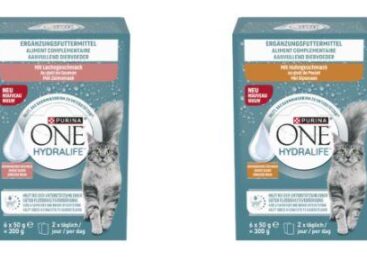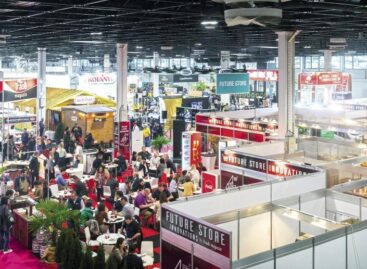Business Days 2020 – Our conference wasn’t cancelled…Vol. 3

Zoltán Fekete
secretary general
Branded Goods
Association Hungary
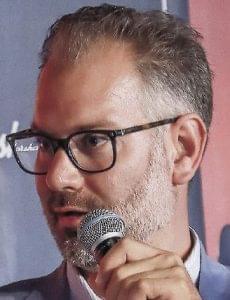
Bálint Zsinkó
member
Lánchíd Klub
On Thursday morning Bálint Zsinkó, a member of the Chain Bridge Club and Zoltán Fekete, secretary general of Branded Goods Association Hungary were the moderators.
Governments and rooms for manoeuvre
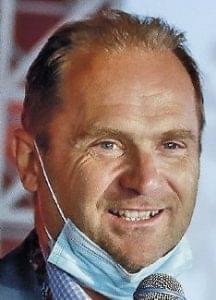
György Jaksity
president
Concorde
György Jaksity, president of Concorde stepped on the podium first, who revealed that the current pandemic pushed the countries 5-20 years back in terms of the GDP. Governments reacted to this by substituting private sector demand with state ‘demand’ – increasing net budgetary expenditure. This can be done with direct budgetary stimulus, by helping with loans and with a system of government guarantees.
Safety instead of novelty

Dr. Ákos Kozák
futurologist
Impetus Research
Futurologist and a business partner of Impetus Research Dr Ákos Kozák sketched up different scenarios for the next few years. He said that consumption is always charged spiritually in one way or another, so companies should bring emotions into their communication at times like these. On the other hand, consumers prioritise in buying during an emergency – but companies can help them in this too, with relevant communication. Those brands that assist shoppers in choosing the product that is best for them and establish emotional ties with them – instead of innovating at all costs – will gain a competitive advantage. Innovation will get a different meaning than it has now: value creation and safety will matter more than novelty.
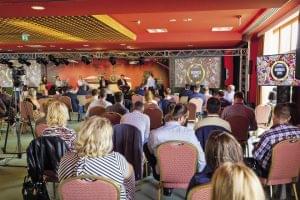
Even amidst the pandemic, we did not give up on the Business Days and so did nearly 550 guests of ours during the four days of the conference
Team effort at the time of crisis
Zoltán Fekete, secretary general of Branded Goods Association Hungary was the host of the day’s first roundtable discussion.

Péter Noszek
managing director
Nestlé Hungária
Participants agreed that working from home proved to be a success story during the pandemic. Péter Noszek, managing director of Nestlé Hungária said the most important things in this period were the safety and financial security of workers. He stressed there is no such things as ‘overcommunication’ at the time of crisis. Maintaining team cohesion and motivating workers virtually were also challenges ahead of the companies.

László Békefi
managing director
Coca-Cola HBC
László Békefi, country general manager of Coca-Cola HBC talked about their comprehensive programme for helping HoReCa partners in the difficult situation.
What will the future bring?

Dr. Ágnes Fábián
president
Henkel Magyarország
Magyar Márkaszövetség
Dr Ágnes Fábián, president of Henkel Magyarország and Branded Goods Association Hungary opined that the usual crisis trends are only partially true now. Product use habits and demand for certain categories have changed. She added that many factors make planning the future difficult.

Ágnes Kovács
managing director
Sió-Eckes
Ágnes Kovács, managing director of Sió-Eckes said: the most important thing for branded product manufacturers is to answer emerging consumer needs credibly, and to offer their products with a good price-value ratio.

Koósa Péter
ügyvezető igazgató
Detki Keksz
Péter Koósa, managing director of Detki Keksz Kft. told that the Hungarian origin of products matters to shoppers even in the pandemic situation. The company postponed the launch of its new innovations to the next year.

Péter Szemes
managing director
Maresi Foodbroker
Péter Szemes, managing director of Maresi Foodbroker Kft. – they represent 25 different brands in 25 categories – spoke about the fact that as importers they are exposed to the changes in the exchange rate of the forint very much. His experience is that some brand owners are thinking more realistically than others in the current market conditions
Devils in the details

István Justin
managing director
Szamos Marcipán

Zoltán Poór
managing director
Puratos
After lunch work continued with new moderators, István Justin, managing director of Szamos Marcipán Kft. and Zoltán Poór, managing director of Puratos.
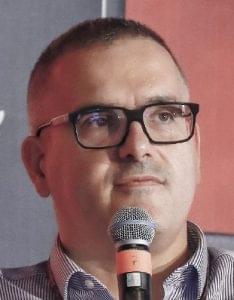
Dr. András Orosz
retail director
MOL
The first topic of discussion was the performance of petrol station shops during the pandemic. Dr András Orosz, retail director of MOL explained that this exciting period gave them the opportunity to start communicating with customers differently.
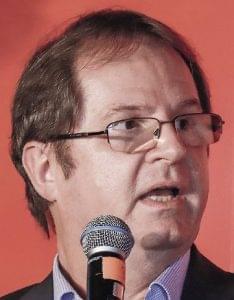
Tibor Balogh
managing director
ÖMV
Tibor Balogh, managing director of OMV revealed that their motor fuel sales are improving, and that supermarket-type petrol station shops – the majority of which they operate in partnership with SPAR – are performing very well this year.
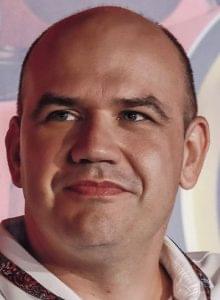
Péter Gyúrós
business development
director, CEE
Shell
Péter Gyúrós, business development director of Shell in Central and Eastern Europe added: honest and direct communication by their parent company made the Hungarian affiliate’s situation better at these difficult times.

Gábor Tolnai
head of division
Kantar Hoffmann
Gábor Tolnai, head of division at Kantar Hoffmann gave a presentation about targeting – in the light of music festivals. He told: although the typical festival-goer is maximum 35 years old and is a heavy social media user, the devil is in the details: the picture is more complex than this. Usage and socio-demographic data can be of great help in fine-tuning targeting; what is more, attitudes and emotions can also be utilised in categorising consumers.

An eternal element of the gala dinner is a cake by Szamos Marcipán that Zsuzsa Hermann, managing director and editor-in-chief of Trade magazin cut together with István Justin, managing director of the sponsor company this time
The new normal
In the second half of the roundtable discussion super- and hypermarkets were in the spotlight.
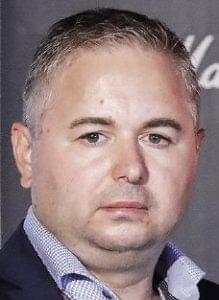
János Dorogi
commercial director
Auchan
János Dorogi, commercial director of Auchan shed light on the fact that their relationship with suppliers got better in the first wave of the COVID-19 pandemic, their partners were absolutely flexible at both product and communication level.

Anita Szabó
sales director
Health division
Reckitt Benckiser
Anita Szabó, Reckitt-Benckiser’s sales director of Health in Hungary and the Adriatic explained that retailers are freeing up space in stores to make them safer from a pandemic perspective, plus shoppers are rushing to get out of shops as soon as possible, so in-store advertising and communication suffer a bit.

János Mezei
member of the
executive board
CO-OP Hungary
János Mezei, a member of CO-OP Hungary’s executive board shared the view that large floor space stores are the winners of the coronavirus situation, those where shoppers can park their cars and shop quickly and comfortably, choosing from a large number of items.
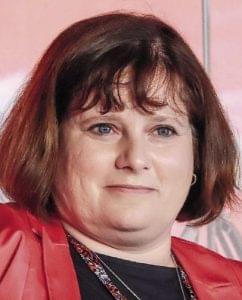
Gabriella Heiszler
managing director
SPAR
It can’t be told yet what the new normal is in retail trade – informed Gabriella Heiszler, managing director of SPAR. She does know what the new normal ought to be in their daily work: managing the various time periods very consciously. Retailers must work on performing well in the short term and at the same time do everything they can to realise their long-term goals.
Trends or phenomena?
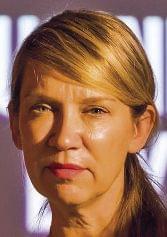
Judit Szalóky-Tóth
partner
Boyden
The last roundtable discussion of the day was focusing on market and trend researchers. Judit Szalóky Tóth, a Boyden partner and László Békefi, country general manager of Coca-Cola HBC were the two hosts.

Dr. Mária Törőcsik
university professor
PTE KTK
University professor and head of Trend Inspiration Workshop Dr Törőcsik Mária called the attention of participants to what could be learnt from former crises: when the difficult period was over, consumers returned to their old habits and to the old trends – they didn’t ‘learn’ from what had happened. Consumption habits change much slower than one would think.

Tamás Falus
CEO
Kantar Hoffmann
Tamás Falus, CEO of Kantar Hoffmann agreed that it was too early to talk about new trends. Instead he noticed new phenomena and tools, e.g. shoppers using e-commerce. He thinks the big question is whether shoppers plan to return to physical stores after the pandemic.
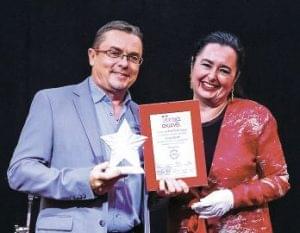
It was again the Business Days gala dinner, on occasion of which we handed over the StarStore (formerly called SuperStore) awards. In addition to the prizes of the jury we also presented a public choice award to Co-op Star this year. The award was taken over by János Mezei János, commercial director
Offline vs(?) online
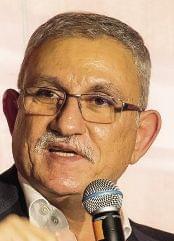
Dr. Michalis Christou
CEO in Europe
RetailZoom
Consumer experience and services: both the offline and the online channels must concentrate on these two concepts – stressed Dr Michalis Christou, RetailZoom’s CEO in Europe. He also called attention to the many new applications, online shops and solutions that came to light in the last 6-8 months.

Norbert Madar
lead consultant
GKI Digital
Norbert Madar, lead consultant of GKI Digital expressed his opinion that it doesn’t matter to retailers what proportions of their sales are realised online and offline. However, shopper needs must be monitored and the two channels can be connected.
What they want and what they buy
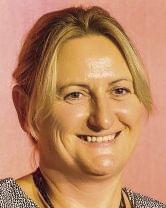
Anita Mekler
partner
Pricewaterhouse-Coopers
Anita Mekler, a PricewaterhouseCoopers partner shared the highlights of a study made in January-April 2020. She told that pre-COVID 6-7 percent of consumers were buying groceries online on a global scale, which surged to 65 percent.
Dr Ákos Kozák, futurologist and a business partner of Impetus Research underlined the importance of separating consumer desires and shopper behaviour in-store, e.g. shoppers don’t expect themselves to be sustainable but they purchase such products if they are available in stores and have the money for them.

Tünde Turcsán
commercial director
GfK
Tünde Turcsán, commercial director of GfK’s FMCG division agreed that consumers don’t always take home from the shops what they thought they would. GfK’s Household Panel data show that consumers now go shopping less often and spend less time in-store, but the basket size is up 15-20 percent.

Balázs Feitel
managing director
IPSOS
Balázs Feitel, managing director of IPSOS shared his belief that the there is no such thing as ‘the consumer’. From a sustainability perspective this means there is a small but increasing group, which is open to the topic of sustainability and shops accordingly. Another bigger group of consumers might also be in favour of the issue, but they can’t or don’t want to pay more for products because of this. The FMCG sector needs to bear this in mind, as sustainability can generate extra sales in both consumer groups.

Following the gala dinner, Vegas Show Band was playing music only until 11 p. m., but the mood was really high with our guests on the last night of the Trade Festival this year
Chain Bridge Foundation already sponsors the studies of 10 students
Thursday was also the day of the conference when the Chain Bridge Foundation introduced the 10 students whose studies it is already sponsoring. Zsuzsanna Hermann, chairperson of the foundation’s Board of Trustees told: since 2016 they have been giving talented students with a disadvantaged financial background HUF 250,000 per semester for a 10-semester period. Member of the Board of Trustees István Matus introduced the students, who couldn’t come to Tapolca because of the pandemic. He called attention to the fact that since 1 January 2020 anyone can offer 1 percent of their personal income tax to the foundation.

Pupils currently supported by the Lánchíd Foundation. Support may be available on www.trademagazin.hu
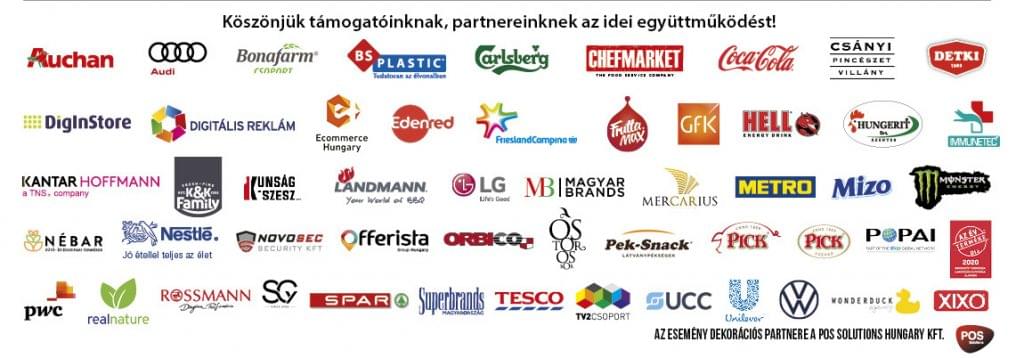 //
//
Related news
PURINA ONE HYDRALIFE
🎧 Hallgasd a cikket: Lejátszás Szünet Folytatás Leállítás Nyelv: Auto…
Read more >Related news
Tuned to efficiency
🎧 Hallgasd a cikket: Lejátszás Szünet Folytatás Leállítás Nyelv: Auto…
Read more >Hygiene on new foundations
🎧 Hallgasd a cikket: Lejátszás Szünet Folytatás Leállítás Nyelv: Auto…
Read more >

